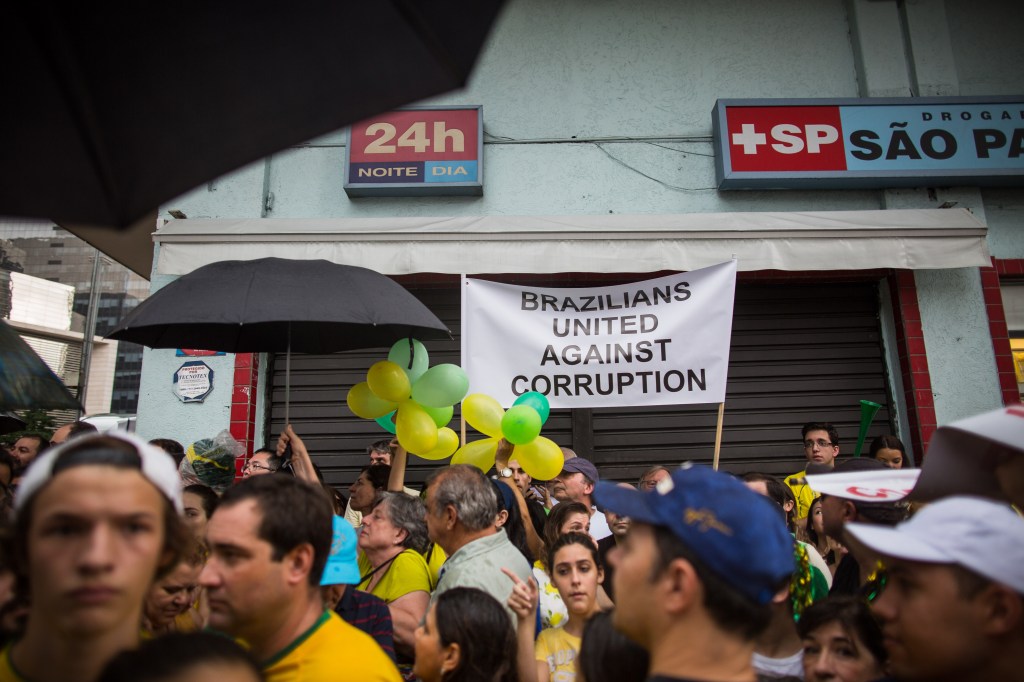On August 1, 2013, Brazil enacted Law N.º 12,846/2013 (Brazilian Anti-Corruption Law or BACL) establishing the strict liability of companies for corrupt acts against national and foreign public officials. The BACL not only covers corruption, but also forbids fraud in public bids and agreements executed with the public administration.
The question everyone asked 10 years ago was whether the BACL would be highly enforced in Brazil. The answer came a few months later with the outcome of the Car Wash Operation, one of the biggest corruption scandals in the region, if not the world.
More than seven years of investigations were carried out by the Brazilian Federal Police – despite some legal controversies, Car Wash Operation numbers remain impressive. It raised over BRL 20 billion ($4.1 billion) and, at the time, resulted in the arrest of high-level executives and significant Brazilian public figures. Nowadays, the question is, what is the future of fighting corruption in Brazil and its impact on Latin America?
Corruption in Latin America
Although Brazil reached a good position in the Perception Corruption Index of Transparency International in 2014, the country has lost 25 positions in the last 10 years. Brazil’s current score is 38, below the global average (which is 43), and it is ranked 94. Other countries, such as Paraguay and Venezuela, are also below the global average, with scores of 28 and 14, respectively.
However, there must be hope in fighting corruption in Latin America. For instance, Uruguay (score of 74) and Chile (score of 67) remain the best ratings among South American countries.
Furthermore, the Brazilian General Comptroller’s Office (Controladoria-Geral da União, CGU), the body of internal control of the Brazilian Federal Government and responsible for carrying out actions against corruption in the country, held a conference assessing the 10 years of the BACL and its future on August 1 and 2 in Brasilia, Brazil’s capital.
CGU anti-corruption conference
During the conference, the regulation of Law No. 14,133/2021 (known as Brazilian New Procurement Law), which came into force on April 21, 2021, and contains provisions encouraging companies engaged in business with Brazilian public administration to implement and develop compliance programs, was highlighted. Moreover, the release of a guideline on executing leniency agreements with CGU under the BACL was discussed.
Also mentioned were CGU’s updates on its parameters to calculate BACL fines according to the Federal Decree No. 11,129/2022 (“Decree”), enacted in July 2022, replacing the former Federal Decree No. 8,420/2015. The new Decree brought some changes regarding the evaluation of the effectiveness of compliance programs, such as: (i) demonstrating the tone at the top through the adequate allocation of resources to the compliance program; and (ii) conducting adequate due diligence for hiring risky third parties (brokers, consultants, and sales representatives), politically exposed persons, and granting donations and sponsorships.
Additionally, the Decree increased from 4% to 5% of the fine reduction factor if the company has an effective compliance program (at the time of a violation of BACL).
It was emphasised that compliance programs are required for companies seeking funding of more than BRL 300 million ($61.6 million) from the Brazilian Development Bank (Banco Nacional de Desenvolvimento Econômico e Social do Brasil).
Finally, CGU highlighted some new features released on its website, such as the monitoring panel that shows the improvement of the companies’ compliance programs under leniency agreements; and the addition of environment, social and governance (ESG) requirements in the Pró-Ética stamp. This stamp was the first of its kind in Latin America to promote and encourage the adoption of integrity and anti-corruption measures in the private sector.
ESG integrity stamps
The Pró-Ética stamp has been consolidated in Brazil and Latin America in recent years, mainly after its restructuring to adapt to the changes brought by the Brazilian Anti-Corruption Law in 2014. International entities, such as the Organization of American States (OAS), the United Nations Office on Drug and Crime (UNODC) and the Organization for Economic Cooperation and Development (OECD) find private entities use of the stamp in Brazil a great practice.
According to the CGU, in 2022, there was a record number of registrations, with a total of 195 companies evaluated. Currently, there are 67 companies accredited with the Pró-Ética stamp for the 2020-2021 biennium, a number 250% higher than the 2018-2019 biennium.
Also, the consolidation and growth of integrity stamps in Latin America is noticed through the initiative of the Government of Paraguay, announced in March 2022, to implement an accreditation to promote a culture of ethics and integrity in business. Another factor demonstrating the growth of integrity stamps is the connection between compliance programs and the ESG agenda, as established in the Mais Integridade stamp from the Brazilian Ministry of Agriculture, Livestock and Supply. This stamp was established in December 2018 to promote integrity in agribusiness concerning social liability, sustainability, ethics and mitigation of risks of fraud, bribery and corruption.
Thus, it is possible to note how necessary the action of the government and the BACL is in the fight against corruption. Furthermore, the private sector is paying attention to the developments of the compliance program requirements, since the companies persist with their compliance agenda seeking integrity stamps and accreditations. An effective compliance program ensures better business rates, mitigates risks, including reputational risks, and reduces fines in case of non-compliance with anti-corruption laws.
Alessandra Gonsales is one of Brazil’s pioneer compliance professionals and the founding partner of the law firm Gonsales Cho Advogados Associados and LEC – Legal, Ethics and Compliance, the only Brazilian educational institution specializing in compliance.
Cláudia Massaia has significant experience in corporate compliance with recognition in Chambers Brazil 2022 and Chambers Global 2023. She is currently an LLM student in Corporate Compliance at Fordham University.
André Simoni is an expert in compliance programs and an associate in the law firm Gonsales Cho Advogados Associados.

















